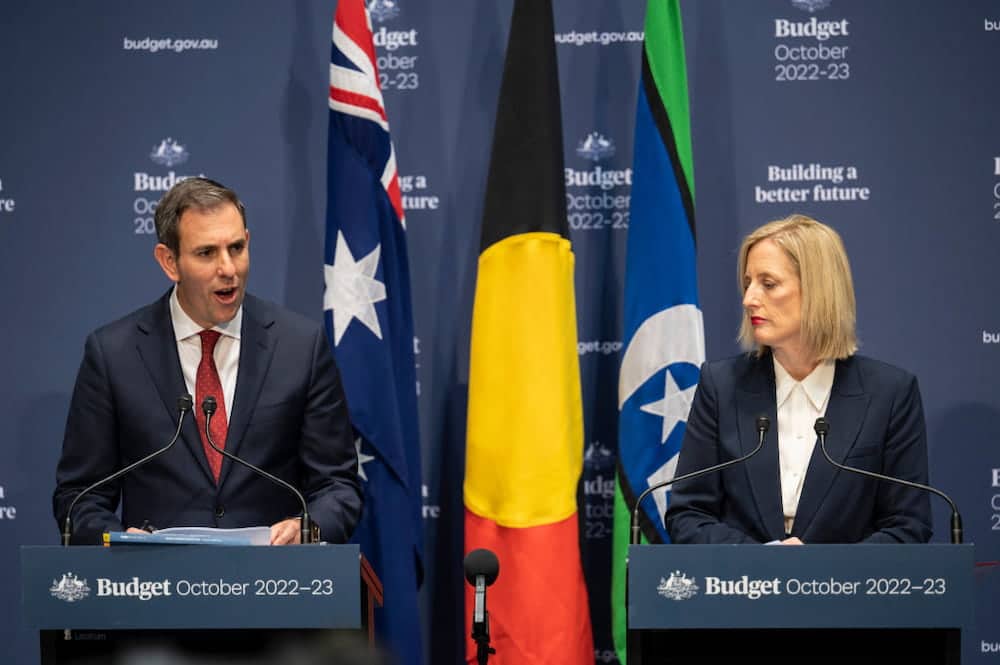This is the first time since 1917 two budgets had been presented in a calendar year, Dr John Hawkins, senior lecturer at the Canberra School of Politics, Economics and Society (University of Canberra), noted.
“The March budget was a pre-election budget with spending splurges and temporary tax cuts aimed at winning votes,” he said. “The October budget is about taking the first steps towards putting the budget on a sustainable basis.”
Labor claims the Budget they inherited from the Liberals was burdened by $1 trillion of debt and persistent structural deficits, so Budget repair is urgently needed.
“There is no doubt that Labor inherited a budget in a structural deficit,” Dr Hawkins said. “Even with commodity prices at record highs and the unemployment rate near a 50-year low, the March budget was projecting deficits as far as the eye can see, at least for another decade.
“This was partly due to the Covid pandemic, and increasing government spending then was the right thing to do. But it also reflects the stage three tax cuts with which the previous government determined to proceed even after economic circumstances had changed so much.”
Labor is keeping the Coalition government’s Stage 3 tax cuts, under which people earning between $45,000 and $200,000 will pay 30 per cent in tax from 2024. Previously, people earning above $120,000 were taxed 37 per cent.
“The Albanese Government has cut some of the more obvious pre-election bribes,” Dr Hawkins said. “There are $22 billion in savings from their audit of spending. Most of this has been used to make debt lower than it otherwise would have been.
“The new Government has not succumbed to the temptation to try to address cost-of-living pressures with temporary handouts, such as the cut to fuel excise that ran from March to September. Instead, it has focused on measures which will both assist struggling households and also expand the economy, such as providing more affordable childcare.” (The government will spend $4.7 billion on early childhood education and care over the next four years.)
“Sound macroeconomic management benefits Canberrans just as it does other Australians,” Dr Hawkins continued. “But Canberra will also benefit from the new Government’s preference for drawing and building on the public service’s expertise and spending less on external consultants.
“The stage three cuts were planned at a time when the budget was projected to be in surplus, no one had heard of Covid, bond yields and government debt were about half their current level, and Russia had not invaded Ukraine. I note that Mr Albanese and Mr Chalmers have not mounted any defence of them on economic terms. About three-quarters of the stage three tax cuts go to the fifth of people with the highest incomes and none to the fifth on the lowest incomes. About two-thirds go to men and only a third to women.
“But Labor promised to keep the tax cuts before the election and election promises should not be lightly abandoned. My hope would be that, as with John Howard and his promise to ‘never ever’ bring in a GST, the Government engages in a conversation with the people and explains why the stage three cuts are no longer affordable and gains a mandate for their abolition at the next election.
“Another welcome initiative in the budget is the chapter on ‘measuring what matters’, also known as a wellbeing statement,” Dr Hawkins said.
The Budget states that a complete or holistic view of the community’s well-being can provide an important foundation for Australia’s efforts to lift living standards, boost intergenerational mobility, and create more opportunities for more people. The government will develop a stand-alone Measuring What Matters Statement in 2023.
“This moves away from the misplaced use of GDP as the main measure of national success,” Dr Hawkins said, “and instead compares Australia’s performance with peer countries in the OECD on a range of aspects of the quality of life, from the environment to life expectancy to political engagement and gender gaps.”
Get local, national and world news, plus sport, entertainment, lifestyle, competitions and more delivered straight to your inbox with the Canberra Daily Daily Newsletter. Sign up here.



